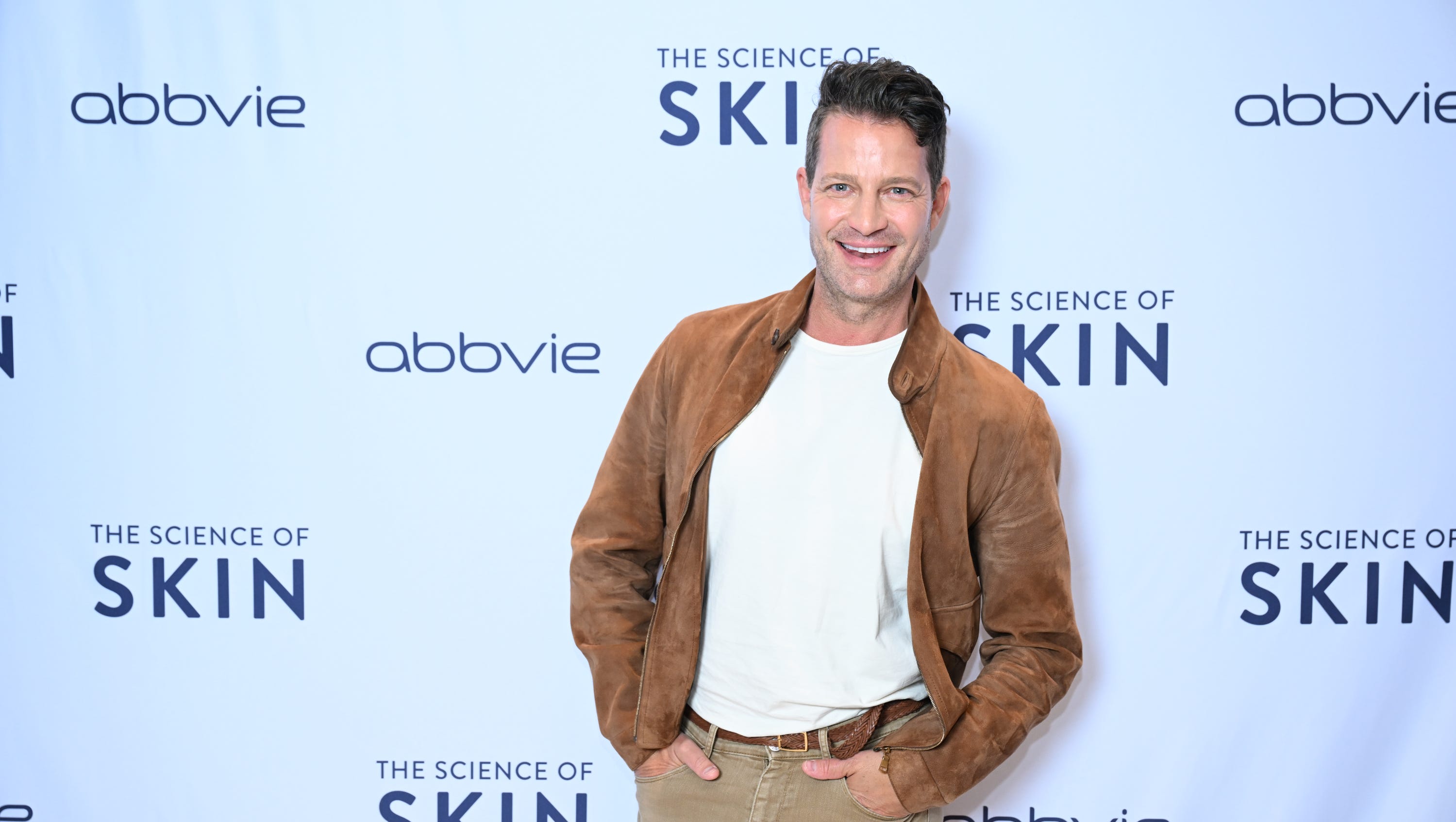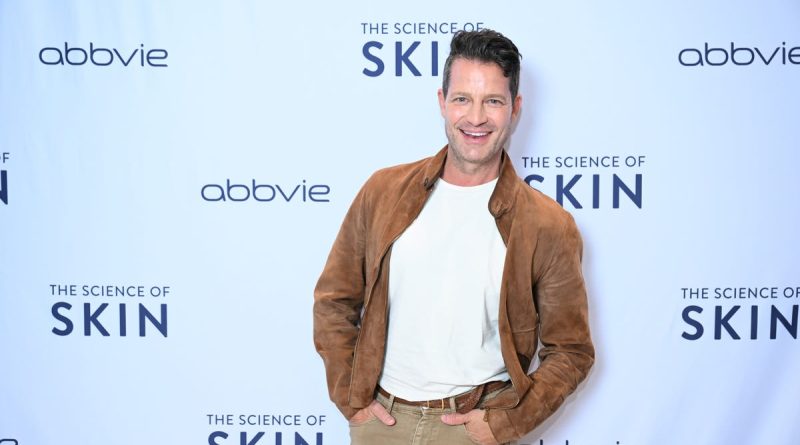What is psoriasis? Nate Berkus of HGTV talks through struggles
[ad_1]
You know Nate Berkus from “The Oprah Winfrey Show” and HGTV – an interior designer with an eye for amazing aesthetics. What you might not know is that he’s been privately battling the skin disease psoriasis.
About 10 years ago, he woke up one morning with flaking and rashes on his chin and sides of his face. Oh no.
“It was pretty noticeable,” he says over a video call. “It wasn’t me just being like some sort of hyper-aware TV host. My husband (Jeremiah Brent) was like, ‘What’s on your face?’ And I was like, ‘What do you mean?’ And I looked in the mirror and remember, just thinking to myself, ‘Am I having an allergic reaction to something?’ I have no idea where it came from, it was absolutely out of the blue.”
He raced off to a dermatologist’s office hours later and received a diagnosis and treatment plan – something he discussed Tuesday night during a panel discussion for AbbVie’s Science of Skin initiative, which offers resources and shows how skin disease affects a diverse range of individuals.
Not everyone, of course, is so lucky to get seen and treated so quickly. And the condition is one that flares up amid stress, so even when you do treat it, it doesn’t just go away for good.
“I had (a flare-up) this morning, which is so fitting after I was sitting in this panel last night,” Berkus says – hence the need for more awareness about the condition that affects more than 8 million people in the U.S. and 125 million around the world.

Psoriasis can be a ‘vicious cycle’
Skin conditions like psoriasis are linked to anxiety and depression, according to research. Plus, on the flip-side, psoriasis flares up amid stress.
“People get caught in what we call this vicious loop or this vicious cycle,” says Dr. Evan Rieder, dermatologist and psychiatrist at Weiser Skin.
Psoriasis typically shows up on elbows, knees, lower back and the scalp; remember, though, that there’s a spectrum of disease between mild and severe. It can ultimately show up anywhere: eyelids, ears, lips, skin folds, hands, feet, nails you name it. It can be red, scaly, flaky, silvery and sometimes itchy. Topical medications can treat it, though if it affects joints or other areas of the body, people might need to see medical practitioners beyond dermatologists, like a rheumatologist, cardiologist or internist.
“When things get more severe, you really want to make sure that you get the diagnosis correct, because the treatments really diverge once things change from mild to moderate,” Rieder says.
Though some cases are more intense than others, not feeling good about your skin reigns subjective person to person. Plus, in non-white racial groups, psoriasis clinical data is limited – making the condition that much trickier to diagnose.
“It really took a toll on me mentally being so outcasted and not being surrounded by people like-minded with the same type of disorder, and made me feel very isolated, and just alone,” says artist DaQuane Cherry, who was also on the panel.
Psoriasis and other conditions can certainly be genetic; environmental factors could also contribute to skin disease, and you can develop it at any time. Berkus’ grandfather had it: “I remember my grandfather sitting there scratching, itching, and I was like, ‘What is he doing, mom?’ And now it’s me.”
In case you missed: Topical steroid withdrawal is controversial. Patients say it’s real and feels ‘like I’m on fire.’
‘It can be really frustrating’
Berkus’ focus of being on TV has always been about connection. That can be challenging when he isn’t feeling so connected within himself.
“In order to connect to other people, you have to be outwardly focused, not inwardly focused,” he says. “And so what I’ve found is that I really have to put my emotion aside, if I don’t feel great about what I look like or I have an outbreak. And that’s challenging, and it can be really frustrating sometimes.”
When seeking treatment, it’s important to find a board-certified dermatologist who makes you feel comfortable, even if the situation isn’t so dire. “Is it life or death? No. Does it affect the way I move through the world? Yes,” Berkus says. “Is it a constant struggle for me to not let it affect the way that I’m moving through the world? Yes.”
Cherry recommends giving yourself grace and self-love as you work through treatment and living with psoriasis; it won’t go away.
“I’m learning to accept it more and just allow it to be a part of me,” he says. “And when I do have the flare-ups, not to be so, so hard on myself, because in the past, I used to isolate myself, I didn’t want to be around people, I used to really beat myself up about it and really feel ugly and insecure. But nowadays, I allow it to embrace everything about me within my work, within my art. My art itself is about keeping your inner child alive, and allowing that to shine.”
As for Berkus: “I have a really great relationship with my dermatologist. I joked last night that I should probably file a restraining order because I send her photos of like, everything from vacation.” Note: Don’t look through their text chain.
Hmm: Is coconut oil good for your hair? The answer may surprise you.
